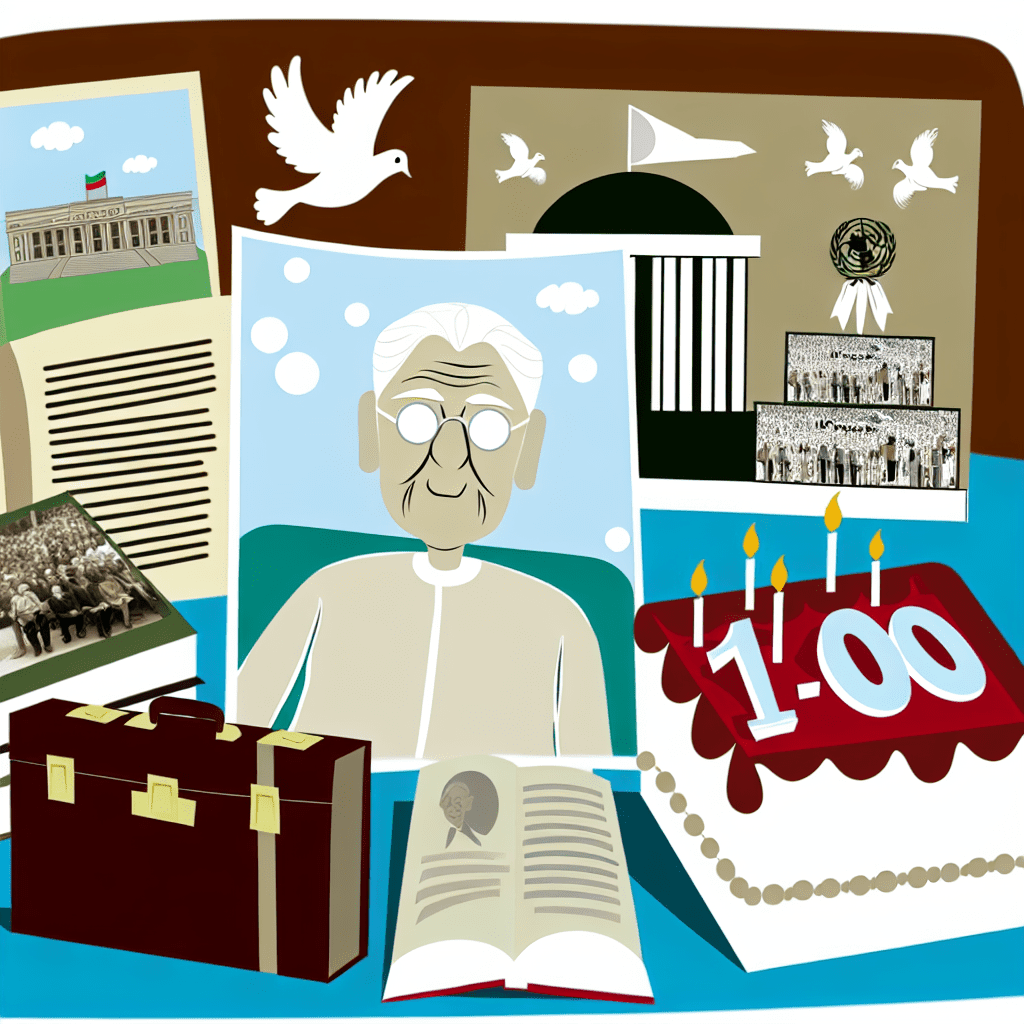
Jimmy Carter: A Life of Public Service and Humanitarianism
Jimmy Carter, the 39th President of the United States, left an indelible mark on American history and global affairs through his dedication to public service, humanitarian work, and unwavering commitment to his principles.
Early Life and Military Service
Born on October 1, 1924, in Plains, Georgia, Jimmy Carter graduated from the United States Naval Academy in 1946 and joined the U.S. Navy’s submarine service. His military career was marked by distinction, and he eventually returned to Georgia to revive his family’s peanut-growing business.
Political Career
Carter’s entry into politics began with his service in the Georgia State Senate from 1963 to 1967. He then became the 76th Governor of Georgia, serving from 1971 to 1975. During his governorship, Carter was known for his progressive stance, particularly his inaugural speech where he declared, “the time for racial discrimination is over,” a statement that shocked many and alienated some of his segregationist supporters.
In 1976, Carter announced his presidential campaign, initially seen as a dark horse candidate. However, his outsider status and emphasis on government reorganization resonated with voters still reeling from the Watergate scandal. He secured the Democratic nomination and, with Walter Mondale as his running mate, narrowly defeated incumbent President Gerald Ford and Senator Bob Dole.
Presidency (1977-1981)
Carter’s presidency was marked by several significant achievements and challenges. On his second day in office, he pardoned all Vietnam War draft evaders. He implemented a national energy policy that included conservation, price control, and new technology. One of his most notable achievements was the brokering of the Camp David Accords between Israel and Egypt, a landmark peace agreement in the Middle East. He also negotiated the Panama Canal Treaties and participated in the Strategic Arms Limitation Talks (SALT II).
Despite these successes, Carter’s presidency was marred by the Iran hostage crisis, an energy crisis following the Iranian Revolution, the Three Mile Island nuclear accident, and the Soviet invasion of Afghanistan. These events contributed to his loss in the 1980 presidential election to Ronald Reagan.
Post-Presidency
After leaving office in 1981, Jimmy Carter established a model for post-presidential service. He devoted his life to humanitarian projects, including his work with Habitat for Humanity and the Carter Center, which he founded with his wife, Rosalynn. The Carter Center has been instrumental in promoting democracy, human rights, and global health, particularly in the effort to eradicate Guinea worm disease.
Carter’s commitment to humanitarian work and his role as a global peace broker earned him the Nobel Peace Prize in 2002. His dedication to public service and his unwavering principles have made him a respected figure both domestically and internationally.
Personal Life and Legacy
Jimmy Carter married Rosalynn Smith in 1946, and they worked closely together throughout their lives. Rosalynn Carter was a significant partner in his political career and continued to advocate for mental health and other causes after leaving the White House. She was also a key figure in the Carter Center and received the Presidential Medal of Freedom alongside her husband in 1999.
Carter’s legacy extends beyond his political achievements. He was a decorated Navy veteran, a brilliant nuclear engineer, and a champion of conservation and clean energy. His commitment to civil rights and his leadership in brokering peace agreements have left a lasting impact on American and global politics.
Funeral and Tributes
Jimmy Carter passed away on December 29, 2024, at the age of 100, making him the longest-lived president in U.S. history. His funeral, held on January 9, 2025, at the National Cathedral in Washington, D.C., was attended by all five living U.S. presidents, including Joe Biden, Donald Trump, Barack Obama, George W. Bush, and Bill Clinton. This rare gathering of current and former presidents was seen as a symbol of unity in a deeply divided political landscape.
President Biden, in his eulogy, praised Carter’s character and faith, noting that he “showed us how character and faith start with ourselves and then flows to others.” Biden also highlighted Carter’s post-presidency as a model, emphasizing his continued commitment to making a difference as a private citizen.
Jimmy Carter’s life and legacy serve as a powerful example of public service, humanitarianism, and the enduring impact one person can have on the world. His commitment to his principles, even in the face of adversity, has inspired generations and will continue to do so for years to come.
[본 글은 AI가 지난 7일간 가장 주목받는 트렌드 키워드를 기반으로 심층적인 정보 분석을 통해 자동 생성한 콘텐츠입니다. 최신 정보를 신뢰성 있게 제공합니다.]